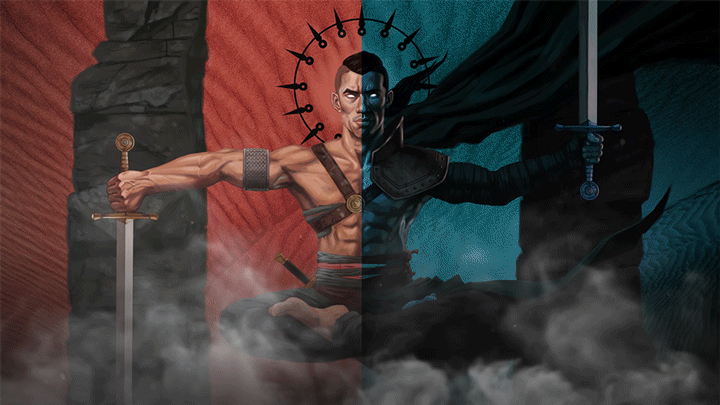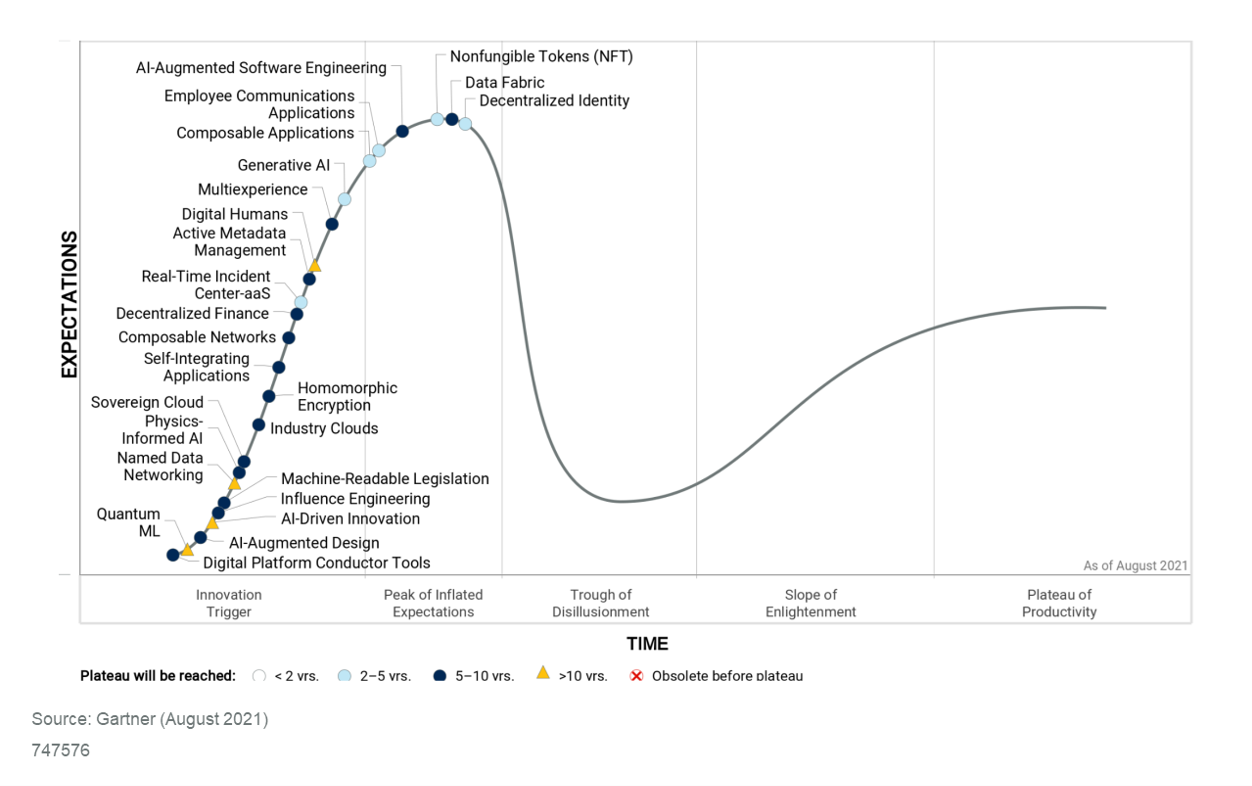Hey there, Coefficients!
I tend to get quiet when I'm in real-time reinvention mode, as I am now.
Have you been curious about DAOs, NFTs, and the world of Web3 / Web 3.0? If so, this special issue is for you.
(And if you're not, rest assured that in my next issue, we'll return to the usual topics.)
Marissa 💃🏽

📆 Event Alert: Internal NFT Training Session
If you want to learn how to start collecting NFTs, one of the companies I'm advising, HeroMaker Studios, is holding an "NFT 101" session tomorrow, May 26, at 2 pm PST. You can join the free session and get the recording by filling out this registration form.
HeroMaker Studios is definitely a company worth checking out -- its founders are Gareb Shamus, a living legend in the comic book space who created Comic Con, and Scott Donnell, the past CEO of one of my favorite wearables, Hapbee. They are creating a Web3 version of Marvel on steroids: entire universes of all-new characters in mobile-first comic books, play-to-earn games, NFT collections, and true community involvement. Over 100 all-new superhero franchises will come out of HeroMaker Studios.
Scott and Gareb are holding this webinar for our personal networks in preparation for Kumite, their first NFT collection (which is itself a remarkable artistic feat -- 9,600 custom-illustrated, entirely new superheroes and supervillains). There's no obligation to purchase an NFT if you join, and you'll get to learn a ton from two minds I've grown to respect very much. That’s why I’m sharing this with you.
I have checked out hundreds of NFT collections, and HeroMaker Studios has the best storytelling, structure, and utility in its NFT collections. It's so much more than profile art -- you're also collecting a character whose story you get to define. You'll see on the call!
⌛️ Optimize Your Time
What
- Decentralized Autonomous Organizations, or DAOs, are groups of people who use smart contracts on the blockchain (and frequently cryptocurrency tokens) to coordinate the community’s actions.
- This guide from Ledger has a great overview of DAOs and the different “flavors” of DAOs emerging now.
Why
- I’m excited about DAOs because they represent a new way for groups to make decisions that isn’t based on a central authority, but a shared set of values and preset processes.
- Right now, in most organizations, a small group makes most of the important decisions — and sometimes the Deciders are very far removed from the people affected most by their decisions. What if more of us had the power to participate in the direction of the companies we love?
What I’m Learning
- DAOs can ”code out” some of the human elements of toxic organizational culture, like siloed decisionmaking and lack of transparency, in their smart contracts, documentation, and internal protocols.
- Lots of Web3 companies are solving similar problems like climate change, food scarcity, and environment regeneration. DAOs give these companies a transparent way to collaborate, share progress, reward contributors, and get financial support.
- DAO contributors are compensated based on the value they create and the percentage of their bandwidth devoted solely to the DAO. These documents are all easy to access by other DAO members (and sometimes even the public), and their terms are hard-coded into smart contracts. I’ve seen dozens of really thoughtful compensation models in the last month alone.
What I’m Still Curious About
- Because of the global nature of DAOs, there’s a huge opportunity to eliminate extractive, biased hiring and pay approaches — some of which have led to the wage gap or hiring overseas workers to cut costs. Can we eliminate the wage gap in one generation?
- So many elements of today’s work culture are outdated and harmful to our wellbeing. How can we optimize ALL of it by “scripting” out every decisionmaking process and making that documentation publicly visible?
- How will our work lives evolve when we can participate in multiple DAOs at once, and dial up or dial down our focus (at will and without negotiation)?
- What happens to the other parts of our life when we can make these kinds of decisions about our time?
💰 Multiply Your Money

What
- Non-fungible tokens, or NFTs, are digital receipts that prove ownership of something: a photo, a character, a plot of digital or real-world land, or membership in a community. Here’s a big guide from Ethereum with more.
- NFTs rile people up for a variety of reasons, including environmental concerns. Even if you never buy one, NFTs are still worth learning about so you can make independent, informed decisions that support your goals and nurture your curiosity.
Why
- Thus far, almost everything we see and use is forgeable, from art to sneakers to driver’s licenses. NFT metadata includes precise details that prove an item’s validity, all logged on the blockchain.
- NFTs are way more than just profile photos, with new approaches emerging every day.
- Right now, we’re watching these early NFT experiments play out. By following the successes and failures, we get to tap into emergent innovation, where the best approaches succeed and persevere.
What I’m Learning
- NFTs let creatives receive royalties for the lifecycle of their work — including the secondary market. Imagine if the original creators and illustrators behind Spider-Man got residuals every time a comic book was resold!
- Later this year, Ethereum will change how it approves transactions from “proof of work” to “proof of stake.” It’s way faster (99.95% better) with proof of stake, which means it will use far less energy, and less than most industries.
What I’m Still Curious About
- Some NFTs provide real-world utility, like conference passes, event tickets, or club membership. What does this let us do with groups and communities that would never have otherwise been possible?
- Can NFTs be used to represent our personal brands, with on-chain links to accolades, accomplishments, and other datapoints where truth is key to protecting your reputation?
- How can NFTs accelerate creativity in people who don’t self-identify as creators? (Transparently, this is what I’m most excited about learning when it comes to HeroMaker Studios.)
🌎 Clarify Your Purpose
What
- Web3 is enabling a new ecosystem and economy that’s based on shared interests, creativity, transparency, and cooperation.
- Subcultures are emerging, including the “regens,” who are focused on real-world impact, especially in reversing pollution and restoring biodiversity. They use DAOs, NFTs, and Discord to organize their activities, with no central authority to make the final decisions.
Why
- We’re most familiar with extractive capitalism, which extracts (or exploit) resources and sells them for profit. Regenerative capitalism involves generating a profit while replenishing and building resources.
- Regenerative capitalism aligns incentives between creator/seller, consumer/buyer, and the Earth. Can it accelerate industry changes that will help protect the Earth’s natural resources?
What I’m Learning
- We can redesign full economies at scale so that they are contextually relevant yet improve how we relate to ourselves, each other, and the world.
- A great example of this is Hypha (long read here), which helps people create DAOs with a component that involves real-world healing and regeneration. (Think carbon removal, clean water, or tree planting.)
What I’m Still Curious About
- How will real-world influence change when we all can create a digital universe with its own economy, culture, mission, lore, and rewards?
- What are the best, highest-impact, highest-integrity Web3 projects that others need to know about?
- DAOs are well-documented, but still kind of hard to onboard into. You need specific knowledge and skills, like setting up a cryptocurrency wallet and using it to sign transactions and logins from your browser or phone. Who’s doing the best job of teaching creative, non-technical users how to safely onboard to crypto and navigate Web3 experiences?
- Will the divisiveness of centralized systems (Big Media, Big Tech, Big Finance) drive even more people to decentralized ecosystems where they can reinvent themselves?
Did You Like This Special Issue?
If you liked this format, Reply to this email and let me know!
I’d be happy to share insights and news from companies I’m advising, what I’m learning and reading right now to stay ahead of the curve, and how I manage information overwhelm.
Sometimes these insights don’t immediately save time, and I’d love your opinion on what’s most interesting to you.



Member discussion